Governance
Relationships Australia NSW is a company limited by guarantee, incorporated in Australia and governed by a Board of Directors.

We are grateful to our Board of Directors for their guidance and support this year.
Directors who served during the year include:
Chair: Chris Bertinshaw
Vice Chair: Steve Rust
Merilyn Sleigh
Andrea Christie-David
Peter Ricketts
Kathryn Greiner AO
Dr Stephen Hollings
Jennifer Alexander Cameron O’Reilly
For judgement free support contact us today relationshipsnsw.org.au 1300 364 277
Annual Report 2017 - 2018
Reshaping lives, one relationship at a time.
FROM OUR CHAIR

Relationships Australia NSW is marking its 70th anniversary this year. Reflecting back on its origins as an organisation established to support families welcoming returning WWII servicemen, we see that strong thread of family support continuing to the current day and beyond.
Of course our service offerings are more nuanced and plentiful now, as we provide education, counselling, connection to community, mediation, and family safety services, in a whole range of home, office based and community settings. We equally work with people with chosen families, carers, workplaces, and those trying to establish meaningful and rewarding connection in their lives. This year we have provided services to 25,968 people, delivering 65,771 occasions of service, and are proud of this significant contribution to the New South Wales community.
This work continues to evolve and expand in line with community expectations and demand. To this end our planning priority is focused on transforming our business utilising data and technology, to ensure that we can meet the needs of rural and remote communities more effectively, be responsive when and where people need us, and to become better able to meet the needs of specific communities through partnership with other strong sector providers. This year we have valued working with organisations such as the AIDS Council of NSW, Relationships Australia Canberra and Region, The Gaimaragal Group, Elder Abuse Helpline and Resource Unit, Christian Community Aid, Settlement Services International, and White Ribbon Australia.
Our Social Enterprise, and in particular the launch of our mental health services through the on-line platform Radiant, continues apace. We have invested in the technology, staff and organisational partnerships required to make this resource, so needed in the community, a success.
We expect a full launch early in 2019. We aim to reach the 1 in 5 people suffering from mental health challenges who currently do not seek services, with a resource that can genuinely support health, wellness and connection.
There have been changes to the governance of the organisation. We appointed a new CEO in late September 2017, and there has been work on refreshing our Strategic Plan and determining the right leadership structure to respond to the challenges identified ahead for the organisation.
These challenges include responding to increasing requirements for complex data analytics, being technologically enabled, and ensuring efficiency, productivity and value for money. Most importantly, we have focused on the clear community expectation, in light of recent public research reports and debate, and we continue to be a trustworthy, excellent, customer-led organisation.
Aligned with our direction, we have been very pleased to recruit 4 new board members: Kathryn Greiner, Stephen Hollings, Cameron O’Reilly and Jennifer Alexander, who have added significantly to our governance skill set. I also acknowledge the retirement from the Board of Merilyn Sleigh, who has contributed a great deal to the organisation over 7 years, including providing leadership of our social enterprise. I would like to finish by thanking my Board colleagues, the CEO and our committed staff for their outstanding efforts and look forward to another year of productively working with all of our stakeholders; funders, sector and corporate partners and staff for the benefit of our clients and families and their communities.
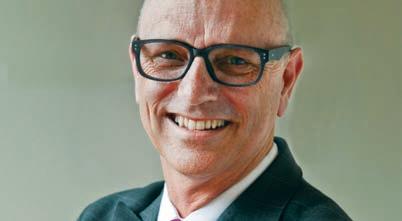
02
To this end we have focused our attention on ensuring that we have the right people, processes, organisational priorities and resources in place to excel in the years ahead.
03
Chris Bertinshaw Chairman, Relationships Australia NSW
FROM OUR CEO
Research released by Relationships Australia for our 70th anniversary focused on loneliness, highlighted the significance of quality relationships as a key factor in reducing loneliness. The emphasis is on quality as well as relationships, as we know that while social isolation marks one kind of loneliness, emotional isolation - that experienced when seemingly well connected and even partnered - can be equally debilitating.
With increasing identification of loneliness as a global phenomenon in Western society, our organisation is well-placed to assist those struggling to feel more connected and less alone.
This year we have been very pleased to expand our services to the communities of New South Wales, through new funds from NSW Justice, Women NSW and Legal Aid to provide a range of services including:
• Support for male victims of violence (in partnership with ACON)
• Educationally based brief intervention to defendants facing domestic and family violence charges with the aim of supporting rehabilitation and preventing re-offending
• Support for men appearing before the Family Court where there are domestic and family violence allegations
• Expansion of Family Safety Programs (including Men’s Behaviour Change) in high need areas.
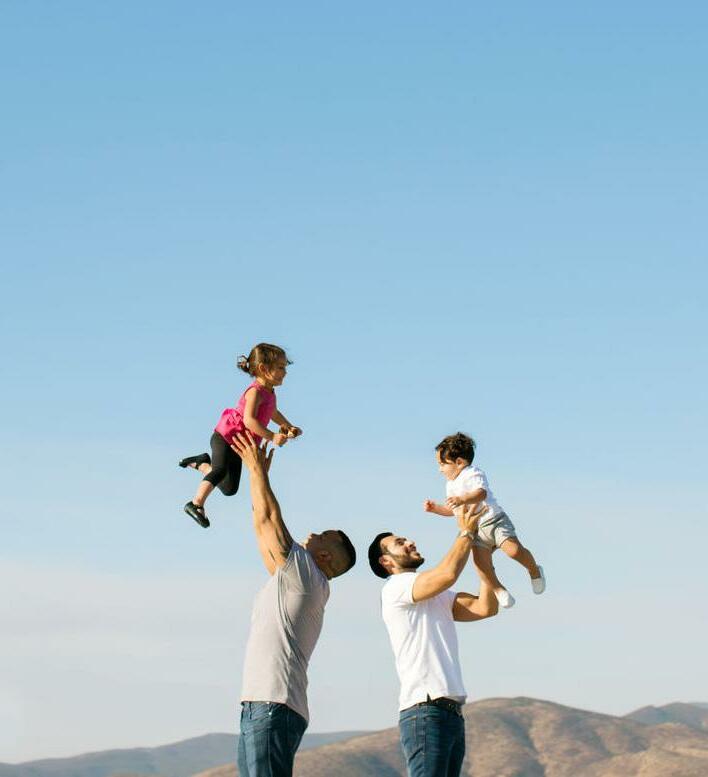
We are also currently rolling out new domestic and family violence prevention services to culturally and linguistically diverse men and their families in partnership with Settlement Services
International, and to families at risk of elder abuse, due to funds received under NSW Women’s DFV Innovation grants. We are also providing coaching and clinical support services to all managers of Family and Community Services across the state, and welcome the chance to bolster these critical and valuable social services.
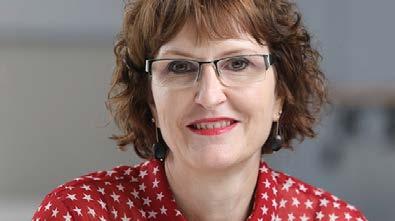
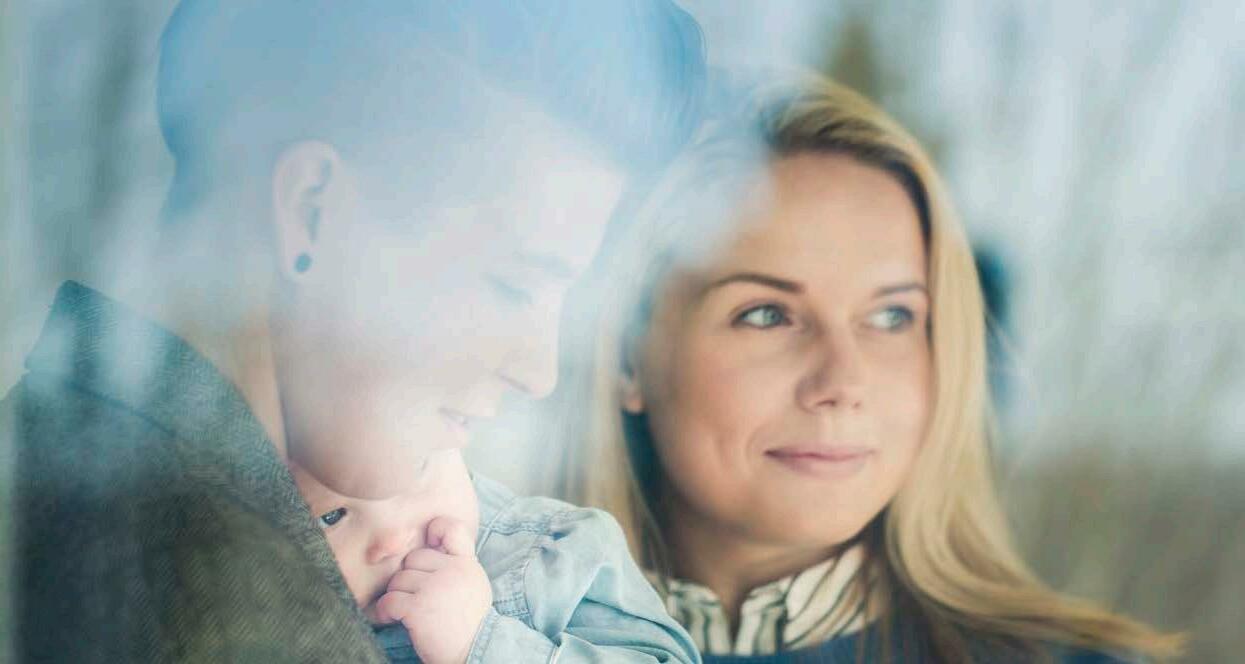
We have launched a range of strategies to strengthen and enrich our services and workplace. These include a Diversity Strategy, aimed at preparing and supporting our staff to welcome a wider range of customers to our services and to be responsive to their diverse needs, building in four main areas: Aboriginal, CALD, LGBTIQ, and (dis)ability services. We have introduced a Wellness Strategy aimed at supporting our strong workforce to take care of themselves as they care for others, and developed a new culturally responsive, trauma informed staff supervision framework. All services are being reviewed in terms of their currency, research evidence and client feedback, and a new Outcomes and Evaluation Strategy is underway, ensuring that we capture and learn from our customer voices.
We have been planning a new business approach, focused on expanded services to our communities using technology, as well as building more efficient and effective internal business systems. We are poised to undertake significant change in these areas across 2019, in service of a stronger, more responsive organisation, well placed to deliver services anytime, any-place anywhere - a phrase that has been our guiding mantra. While this will involve investment and significant change, it will ensure that our services are ready to meet the service demands ahead. Increasingly we see how our own digital platform in development - Radiant – exemplifies service solutions in an environment where our customers
want to be able to find what they need in their own time and on their own terms, and with their chosen service providers, rather than be recipients of what they are told they need, or to select from what can be limited offerings.
I commend the work of the Executive Team and Leadership group across the year, ensuring that we are a safe, strong and reliable organisation, with room for innovation and bold ideas. I also thank the Board for their support, and all staff for their service in achieving significant outcomes for so many in our communities.
04
Elisabeth Shaw CEO, Relationships Australia NSW
05
WORKING WITH VULNERABLE FAMILIES
Over the past year, more than 540 people have been assisted by the Touchstone (Illawarra) and RAPS (Sydney) Adolescent Family Therapy and Mediation Services run by Relationships Australia New South Wales.
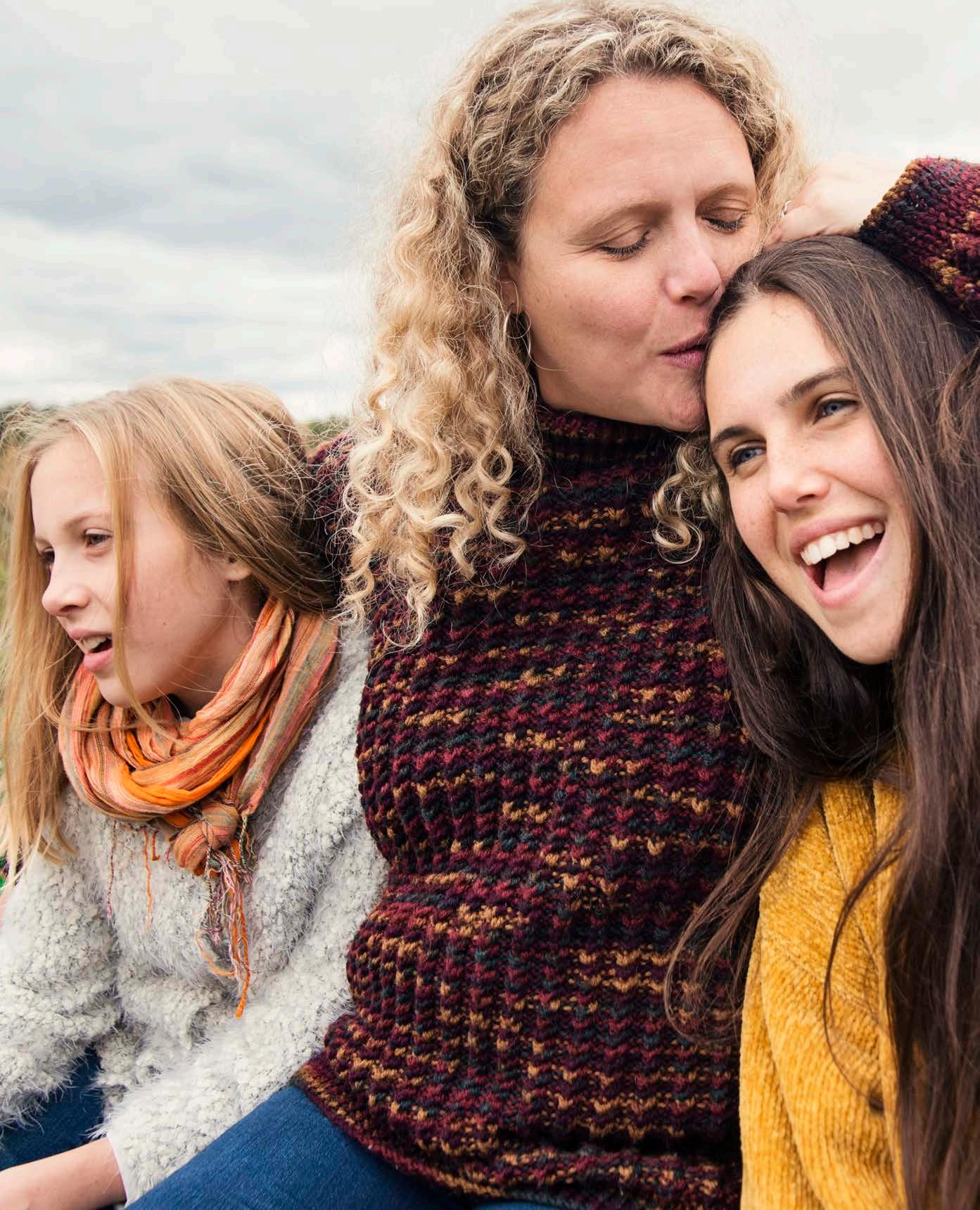
Adolescents at risk of homelessness and their families have been supported by dedicated, skilled family therapists to address complex and often life-threatening issues such as drug and alcohol misuse, family conflict, self-harm, suicidal ideation, depression and the devastating impacts of bullying — especially cyber bullying.
Young people can appear more ‘connected’ through social media. While Instagram, Snapchat and Facebook provide online ‘cyber friends’, alongside the potential to bully and shame, they also fail to deliver real relationships.
However Touchstone and RAPS staff see many families where adolescents present feeling lonely and isolated within their family and social groups, with self-harming and suicidal ideation often the result of lost hope in a future. Through our services, we support and empower families and adolescents to make changes that directly address the
causes of their difficulties, harness and enhance the relationships and connections available, and in so doing, seek to ensure that the young person is assured of stable and safe living arrangements that enable them to thrive.
In the past year, our Touchstone and RAPS therapists have:
• Run healthy relationships seminars at Albion Park High School for 800 students, providing resources and referrals for support services
• Attended Rainbow League groups to support Lesbian, Gay, Bisexual, Transgender, Intersex and Queer young people
• Formed a partnership with Settlement Services International to facilitate parenting groups and service with more refugee and migrant families
• Run seminars attended by 130 students at Smith’s Hill High School on how to access help and how to protect and reconsider cyber friendships and develop healthy relationships
• Employed a multi-lingual counsellor at RAPS to deliver more support services to families with culturally diverse backgrounds.
06
07
09
HOW WE HELP CLIENTS SHIFT FROM LONELINESS TO CONNECTION
Life events and transition points can often put family members at risk of isolation and loneliness. Our research indicates that couples and family members who experience family breakdown through separation and divorce are particularly vulnerable in relation to loneliness. RANSW employs a range of services to improve relationship skills, explore social supports and build social connection during these life transitions.
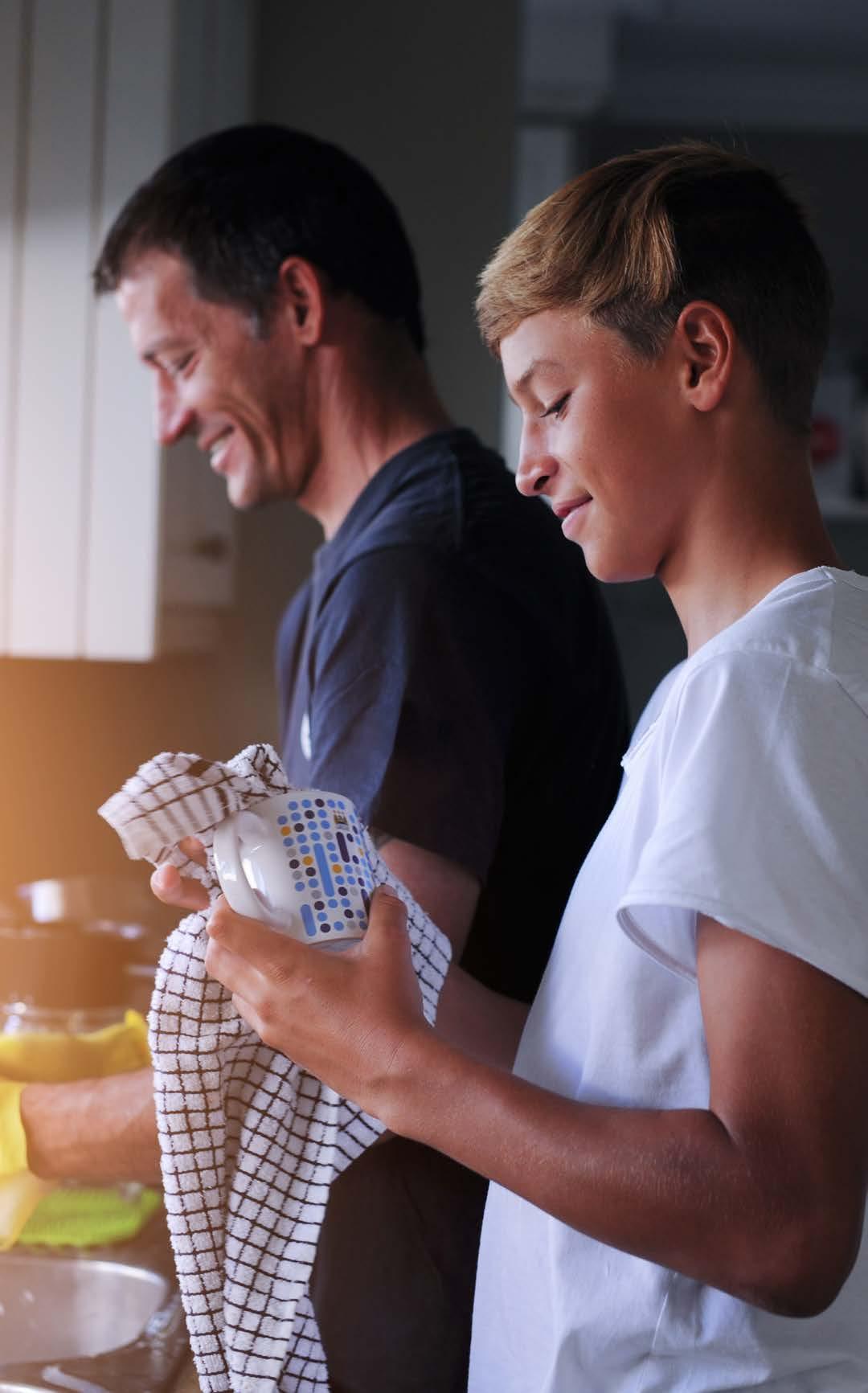
Our practitioners tailor their approaches and strategies for each client rather than incorporating a one-size-fits-all solution for loneliness. A package of services including counselling, group programs, referrals to other social supports, parenting skills and mediation, are all available according to the client’s needs.

While practitioners will validate their clients’ feelings of loneliness, they will also encourage clients to develop their ability to connect with their immediate and extended communities in meaningful ways. Focusing on the client’s strengths, interests and efforts can change the experience of isolation. Strong relationships will reduce loneliness, and will also provide a stable base from which to build new opportunities.
“ “
Trish* was a divorced woman in her 30s. She came to our service after she had initiated a divorce upon realising she had strong feelings for another woman.
In addition to the loss and grief experienced in the dissolution of her marriage and the loss of connection to mutual friends, her feelings of isolation were amplified by homophobic attitudes and her experience of marginalisation and discrimination.
As she tried to form new relationships, Trish was also daunted by the prospect of knowing how to forge new links with the LGBTQI community and balancing her responsibilities as a single parent.
Our counsellor explored with Trish the idea of pursuing interests, rather individuals, and in her process of self-discovery, she realised she liked singing, theatre and reading, subsequently joining a choir and then a book club.
*Names have been changed.
Our practitioners tailor their approaches and strategies for each client rather than incorporating a one-size-fits-all solution for loneliness. 08
She began to enjoy her post-divorce life, feeling less lonely and more confident in social gatherings with new people.
In 2017-2018 we helped reshape our client’s lives through counselling, mediation and group programs. Here’s a snapshot of our clients and our performance.
Financial results
In this financial year Relationships Australia NSW achieved a net surplus of $383,207. We received funding of $28.4m from various government sources including the Australian Department of Social Services; the Attorney-General’s Department; NSW Department of Family and Community Services; NSW Ministry of Health; and NSW Department of Juvenile Justice.
Additional Financial Report details are available from relationshipsnsw.org.au/ annualreport.
Revenue
6% Children 19% Migrants
10 Federal Gov.
State
Education
Other
Grants
Top 5
RESHAPING LIVES IN NSW
Grants
Gov. Grants
Revenue
Gov.
Fees Other Income
1. CONFLICT 2. COMPLEX FAMILY ISSUES 3. BEHAVIOURAL ISSUES – CHILD 4. DIAGNOSED MENTAL ILLNESS 5. CULTURAL Expenditure Staff Property Depreciation Brokerage Admin, IT & Promotion National Levy Affiliation Other Presenting Issues 11 65,771 CLIENT SESSIONS Counselling Mediation Group Programs 47% 53% 6% Australia’s First People Aboriginal & Torres Strait Islanders $120,000 pro bono services provided * 8 clients identified as intersex or non-binary felt listened to and understood 9 out of 10 people were satisfied with the services provided 9 out of 10 people were able to deal with their issues better 4 out of 5 people









